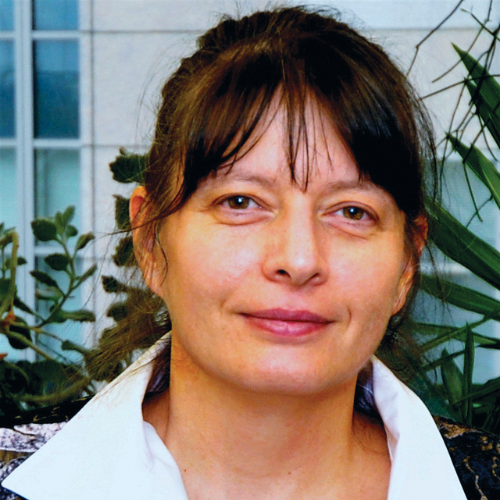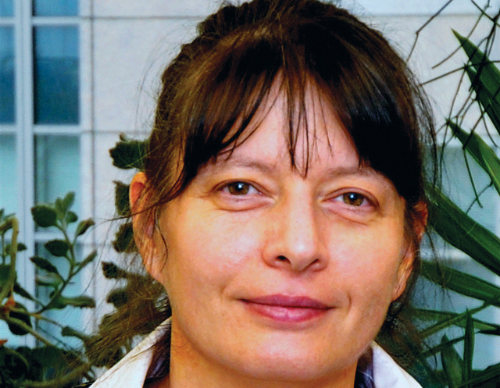Credentials
Dana-Farber Cancer Institute and Harvard Medical School
Boston, Massachusetts
Professor, Medical Oncology/Molecular and Cellular Oncology (DFCI)
Professor of Medicine, Harvard Medical School
Research Projects
Brain metastasis is one of the most devastating diagnoses in breast and other cancer types
with detrimental effects on clinical outcomes. This is in part due to the special challenges
associated with the treatment of brain metastases, including ineffective drug delivery due to
the special microenvironment of the brain as well as the extreme heterogeneity (different types) of cancer cells driving therapeutic resistance.
To tackle these challenges, Dr. Kornelia Polyak, a pioneer of the tumor microenvironment (TME) and tumor heterogeneity, is leading a collaboration with Dr. Valerie Weaver, also a pioneer in the TME and the physical properties of cancer cells.
The research is investigating how changes in environmental stress such as lack of nutrients or low oxygen, alters the sugar molecules attached to cancer cells of primary tumors compared to those attached to brain metastatic cancer cells. These changes can alter the cancer cell’s response to treatment, the ability of immune cells to recognize the cells, and the stiffness of the tumor, which affects drug delivery.
IMPACT
The role of sugar coating and variability in stress responses in cancer are largely unexplored scientific areas of cancer research with high clinical impact for positive therapeutic outcomes. The successful completion of this research will lay the foundation of combination therapies targeting both cancer cells and their microenvironment for the more effective treatment of brain metastatic disease.
Background
Kornelia Polyak, M.D., Ph.D., is a Professor of Medicine at Dana-Farber Cancer Institute, Harvard Medical School. She received her M.D. in 1991 from Albert Szent-Gyorgyi Medical University in Szeged, Hungary. In 1995, she received her Ph.D. in cell biology and genetics from Cornell University Graduate School of Medical Sciences, New York, New York. She completed post-doctoral studies in cancer genetics at Johns Hopkins Oncology Center in Baltimore, Maryland in 1998 prior to joining the faculty at DFCI and Harvard.

Our approach emphasizes a collaborative, team environment to accelerate new breakthroughs.















